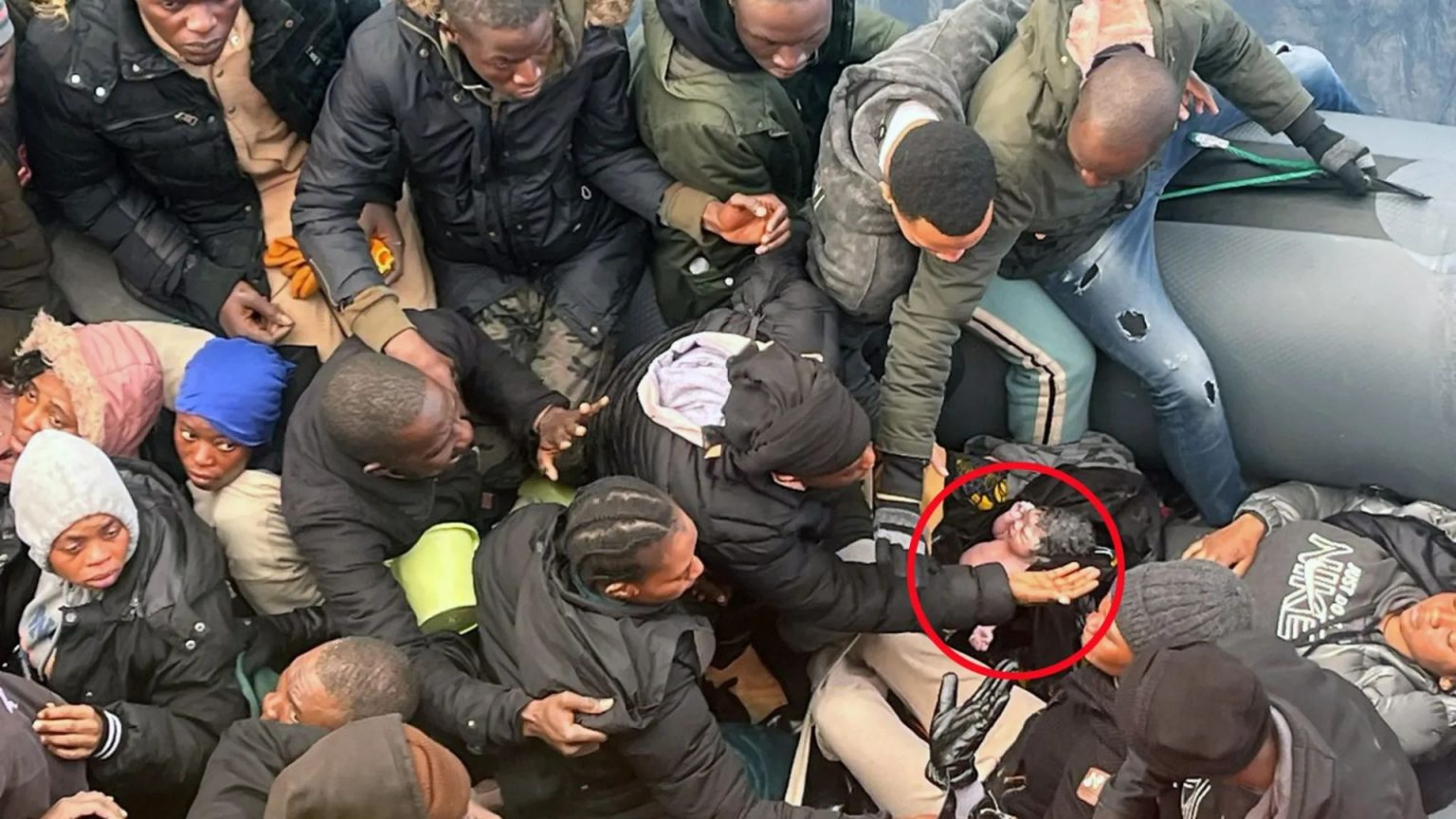A remarkable rescue unfolded off the coast of Lanzarote, one of Spain’s Canary Islands, on Three Kings Day, a holiday traditionally celebrated with gift-giving. A crowded migrant dinghy, carrying 60 individuals including 14 women and four children, was intercepted by the Spanish coast guard. Among the passengers was a newborn baby, delivered a mere 30 minutes before the rescue. Photographs captured the incredible scene: the mother lying at the bow of the overcrowded inflatable vessel, her naked newborn resting on her lap, surrounded by fellow migrants, some offering support and attention. The precariousness of their situation was evident, with the boat packed to capacity and one man seen pushing it away, likely to maintain some distance while awaiting rescue.
The coast guard’s arrival brought swift relief and a heartwarming discovery. Captain Domingo Trujillo of the rescue vessel, already aware of a pregnant woman onboard, expressed his astonishment at finding the newborn, delivered so recently. Trujillo described cradling the crying infant against his chest, providing comfort and warmth. Medics onboard, recognizing the vulnerability of both mother and child, immediately recommended a helicopter transfer to a hospital. This rapid response ensured the pair received prompt medical attention and a safer environment. The rescue operation, captured in photographs, showed coast guard personnel in white suits carefully towing the dinghy, showcasing the delicate nature of the mission.
Alvaro Serrano Perez, commander of the rescue helicopter, aptly described the event as “the best gift we could have received” on Three Kings Day. This sentiment underscores the profound human element of the rescue, transforming a day of celebration into one of life-saving action. The arrival of this newborn, under such challenging circumstances, served as a poignant reminder of the ongoing migrant crisis and the human stories at its heart. The successful rescue offered a beacon of hope amidst the often tragic narratives associated with irregular migration.
The Canary Islands, situated off northwestern Africa’s Atlantic coast, have become a focal point of the migrant crisis, experiencing a surge in arrivals, particularly from Mali, Senegal, and Morocco. The archipelago recorded an unprecedented 47,000 arrivals in 2024, marking the second consecutive year of record-breaking numbers. This influx represents a staggering 73% of all irregular migration to Spain, placing immense pressure on the islands’ resources and highlighting the scale of the challenge faced by Spanish authorities. The continuous flow of migrants underscores the desperation driving individuals and families to undertake perilous journeys in search of safety and better opportunities.
The rescue of the newborn and his mother serves as a microcosm of the broader migrant crisis, illustrating the human cost of displacement and the urgent need for comprehensive solutions. While this particular story had a positive outcome, it highlights the risks undertaken by vulnerable individuals, including pregnant women and children, who are forced to embark on dangerous sea voyages. The sheer number of arrivals in the Canary Islands underscores the urgent need for international cooperation to address the root causes of migration and to ensure safe and legal pathways for those seeking refuge.
The incident near Lanzarote, while unique in its circumstances, is unfortunately not an isolated event. The ongoing influx of migrants to the Canary Islands reflects a larger global trend of individuals and families fleeing conflict, poverty, and persecution. The rescue of the newborn serves as a powerful symbol of hope and resilience, but also a stark reminder of the ongoing humanitarian crisis. It emphasizes the need for continued efforts to protect vulnerable migrants, to provide them with adequate support and resources, and to address the complex factors that drive them to undertake such perilous journeys. The image of the newborn cradled in the arms of the rescue captain, juxtaposed against the backdrop of a crowded dinghy, encapsulates the human drama unfolding at Europe’s borders.


